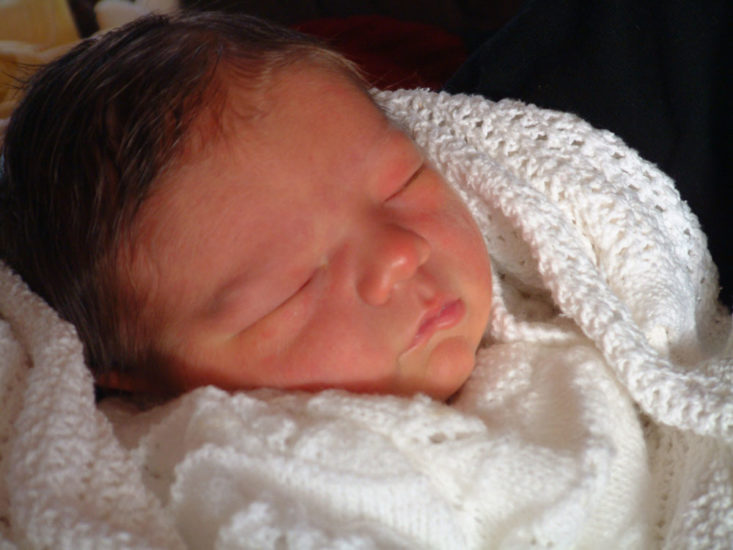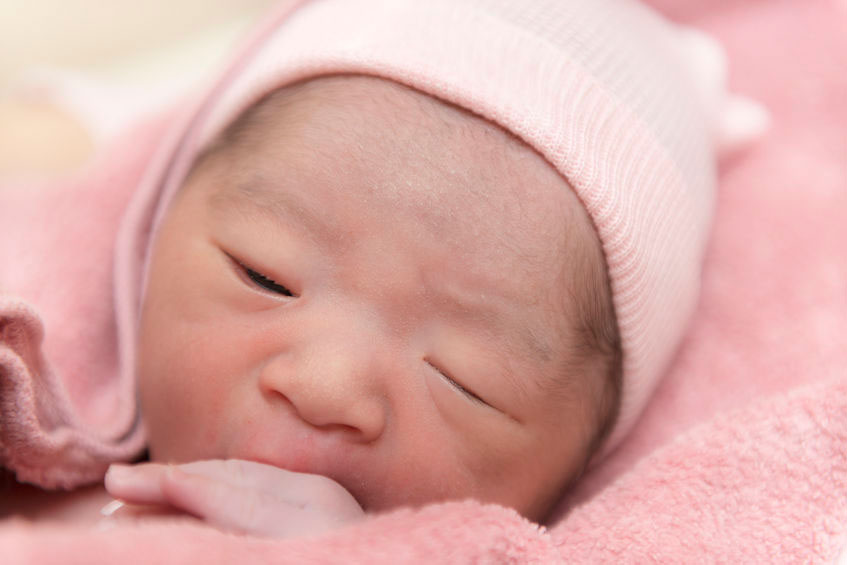Can You Breast Feed With Herpes
The herpesvirus family includes herpes simplex virus and varicella-zoster virus. An infection with herpes simplex virus is commonly known as herpes and varicella-zoster virus causes chicken pox and shingles. Symptoms of a herpesvirus infection include outbreaks of little blisters or sores on the skin which could include the breasts or nipples. If you think you might have one of these infections, consult with your doctor to get a positive diagnosis as blisters on nipples can have other causes. This article looks at frequently asked questions if you are breastfeeding and have herpes simplex virus or varicella-zoster virus.
Herpes simplex virus
There are two herpes simplex viruses; type 1 (HSV-1) and type 2 (HSV-2). An infection with herpes simplex 1 usually appears as an open sore (known as a cold sore) or small blisters (fever blisters) in the mouth area causing oral herpes but HSV-1 can also cause genital herpes. HSV-2 is almost exclusively transmitted through sexual contact, producing blisters on the skin and the moist lining of the genital or anal organs (genital herpes).1 The small, painful, red-rimmed blisters containing viral material dry and form a scab after a few days (similar to chicken pox lesions). The blisters can appear anywhere on the body including the breast.
Can I breastfeed with herpes?
If a mother has herpes simplex virus, she can still breastfeed as long as the following precautions are observed:
#1 Prevent baby from touching the sores
As these viruses are spread by simply touching the sores, it is important that your baby doesn't come into skin-to-skin contact with any of the herpes lesions. Sores should be completely covered so the baby cannot touch them.2
#2 Observe strict hygiene
Observing strict hygiene by washing hands thoroughly with soap before breastfeeding and sterilising breast pump parts after each use will help prevent spreading the infection.3
#3 Seek medical advice for babies under three weeks of age
Herpes can be very dangerous and life threatening for a newborn baby up to three weeks of age. A mother should speak to her healthcare provider for the latest recommendations and precautions if she has a very young baby and suspects she has herpes or has recurrent herpes.4
#4 Avoid kissing your baby if you have oral lesions
A mother with a cold sore on her lip can breastfeed but should be warned not to kiss her newborn and to wash her hands often and be very careful about hygiene precautions while the sore is active (Lawrence and Lawrence, 2016).
Can I breastfeed if herpes sores are on the breast or nipple?
If active herpes sores are on a breast or nipple, mothers are advised not to breastfeed from that breast until the lesions have dried.5 6 Mohrbacher clarifies that breastfeeding can continue if it is possible to cover all the sores so the baby does not come into any contact with them otherwise breastfeeding could continue on the other breast if there are no lesions on that breast (Mohrbacher, 2020 p731). Treatment with antiviral medications may reduce the period of active herpes lesions (Lawrence and Lawrence, 2016).
The breast milk from a breast with an active herpes lesion will need to be expressed to maintain the mother's milk supply and prevent engorgement or mastitis. If this milk can be expressed without it coming into any contact with a herpes sore (or any breast pump part or hand that has been in contact with a sore), the expressed milk can be given to the baby. However if the milk has been in contact with a sore it should be thrown away (Mohrbacher, 2020, p731).
Can I breastfeed a toddler who has oral herpes?
If a breastfed toddler has oral herpes there is a risk of transferring HSV-1 from the child's mouth to the mother's nipples by breastfeeding.7 However by the time the mother is aware that her little one has sores on their lips or in their mouth it is likely that she will have already been exposed to the virus because cold sores/herpes ulcers in the mouth are contagious for a day or two before the lesions appear.8 9 Many people carry the herpes simplex virus without having any symptoms10 which will make it difficult for a mother to gauge her risk of getting the infection if she doesn't have a history of herpes.
Jack Newman, a Canadian paediatrician and breastfeeding expert, says that a child with herpes ulcers in the mouth (herpes stomatitis) can carry on breastfeeding as the mother will have already been infected a few days before the sores appeared.11 Newman adds that if the mother does develop sores on her nipple she can continue breastfeeding if she is able to, but if the sores make breastfeeding too painful, hand expressing breast milk for the toddler is likely to be more comfortable than pumping until the sores heal. The mother should discuss her situation with her healthcare provider for the latest medical advice including whether antiviral medication is recommended (see below).
Is herpes passed on through breast milk?
The risk of catching herpes from breast milk is very low. Authors Wambach & Spencer state it is "doubtful" that HSV infection can be transmitted via human milk. Transmission during lactation is more likely to occur with direct contact with an active lesion or blister.12
The following paper also states the risk of viral transmission via breast milk is very low and that breastfeeding ought not be interrupted unless the sores are on the breasts:
The risk of viral transmission via breast milk is very low. In nursing mothers with herpes, breastfeeding should not be interrupted, except when the herpetic vesicles are located on the breasts. Active lesions in other body parts should be covered, and the nursing mother's hygiene should not be overlooked so that breastfeeding can be maintained.

Herpes treatment and breastfeeding
Although there is not a cure for herpes, antiviral treatments (drugs and topical creams) focus on relieving symptoms and preventing the spread of HSV (Wambach and Spencer, 2020). Lawrence and Lawrence 13 state that oral or IV acyclovir (Zovirax) and valacyclovir (Valtrex) are compatible with breastfeeding. For the latest information on compatibility of antiviral drugs with breastfeeding refer to the resources listed in Medications and Breastfeeding, e.g. Hale's Medications and Mothers' Milk [paywall], Lactmed or e-lactancia.
Varicella-zoster virus
Varicella-zoster virus also belongs to the herpesvirus family, it affects the central nervous system and an infection can cause chickenpox (varicella) and shingles (zoster).
Breastfeeding and chickenpox
Chickenpox is generally a mild contagious childhood illness.14 Most adults will have immunity to it as they will already have had it as a child or been immunised against it in some countries.
Can I breastfeed with chickenpox?
If a mother develops chickenpox for the first time while breastfeeding, she can continue to breastfeed because her baby will have already been exposed to the infection before the blisters came out, and immune factors in breast milk can help the baby's recovery.15 16 17
Caution for the newborn baby
Note, if a mother develops chickenpox for the first time up to five days before or two days after her baby's birth (Wambach and Spencer, 2020; e-lactancia, 2020), this could be very dangerous for her baby and she should seek urgent medical advice from her health professionals. 18 Breastfeeding can continue in this situation, but the baby will require treatment against the virus and the mother is advised to take special hygiene precautions, and avoid her baby being in contact with any skin lesions until they are fully crusted.19 20 Paediatrician Jack Newman explains:
Infected babies should be given zoster immune globulin (antibodies against the virus) immediately at birth and acyclovir or a similar drug to prevent the baby from getting very sick. The baby and mother should not be separated. The baby should be breastfed to get the immune factors present in the milk that will help protect his mucous membranes from invasion by the virus.
For more information about symptoms and treatments see Chickenpox and Breastfeeding, Breastfeeding Network, 2019.

Shingles and breastfeeding
If you have already had chickenpox, the virus can sometimes flare up again years later as shingles (herpes zoster virus). It causes a painful rash that develops into blisters usually affecting just one area of the body which may include the breast. It is possible to catch chickenpox from someone with shingles if you have not had it before—by skin-to-skin contact with the blisters.
Can I breastfeed with shingles?
Doctor Jack Newman explains that the baby of a mother with shingles will already have some immunity to chickenpox from his mother and breastfeeding can continue:
So, if the mother gets shingles, should she stop breastfeeding? Absolutely not. She is immune. She had chicken pox in the past and the baby got antibodies from her during pregnancy. These antibodies remain in the baby's blood for about six months; plus, he will receive immunity through breastfeeding. If the mother is treated with acyclovir or a similar drug and painkillers, she does not have to interrupt breastfeeding.
Lesions on the breast?
The Academy of Breastfeeding Medicine advises against breastfeeding from a breast with shingles lesions until they have healed:
Exposure to these [shingles] lesions can result in chicken pox (varicella zoster) in unimmunized infants. In most situations, it should be treated similarly to a Herpes simplex infection and women should not breastfeed or use expressed breast milk from an affected breast until the lesions have healed. Infants may be given Zoster immunoglobulin if appropriate.
Cover lesions
The Breastfeeding Network indicates if the lesions can be covered there is little risk of passing on the infection:
If the rash is only on your body and can be covered by clothing, there's little risk of passing the infection on to others even before the lesions have dried.
Summary
If a mother has herpes simplex virus she can continue to breastfeed as long as any herpes lesions are covered so that her baby has no contact with the sores. If active lesions are on a breast/nipple, breastfeeding will need to be interrupted from that breast until the sores heal. Contact with herpes can be very dangerous for a baby under three weeks of age and a mother should contact her doctor for advice if she suspects she might have herpes in the early weeks after birth. Breastfeeding can continue if a mother has chicken pox for the first time while she is breastfeeding, but again this can be dangerous for a newborn baby in their first week of life, and a health professional should be consulted so that appropriate precautions can be taken. Shingles is compatible with breastfeeding, the recommendation being to cover all lesions so that baby has no direct contact with any active sores.
This article should not be considered a substitute for advice from your health professionals. Any medical concerns about yours and your baby's welfare should be discussed with your doctor, paediatrician or health care provider.
connollymarmuccuself.blogspot.com
Source: https://breastfeeding.support/herpes-and-breastfeeding/
0 Response to "Can You Breast Feed With Herpes"
Post a Comment